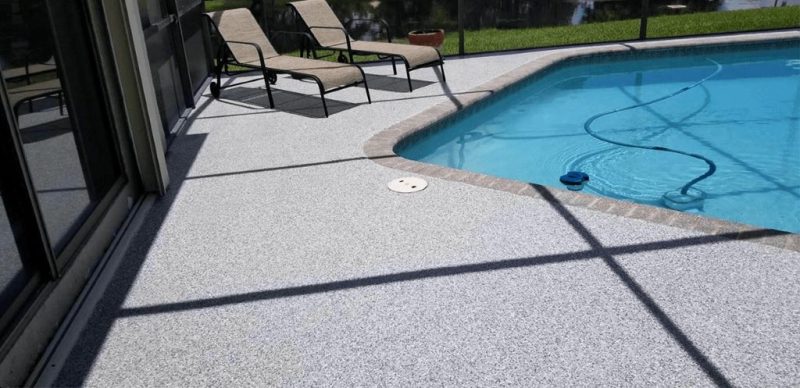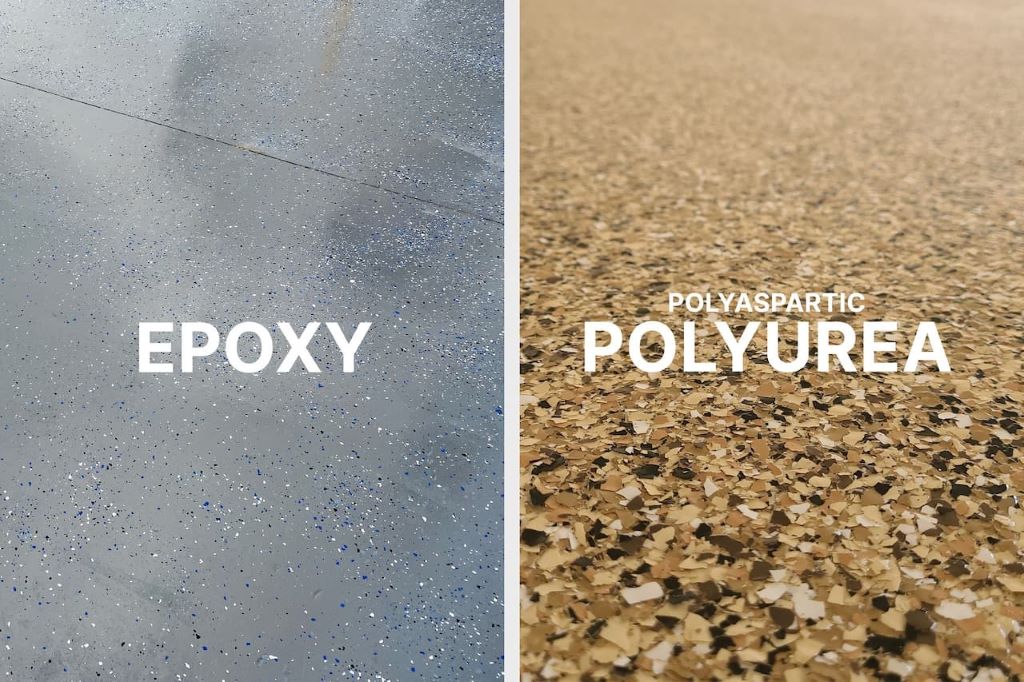Outdoor projects face constant exposure to harsh elements—rain, sunlight, and temperature shifts, all of which can lead to damage. This is where epoxy coatings for durability in outdoor projects come in, offering an effective way to add resilience and longevity to outdoor surfaces like patios, walkways, and outdoor furniture. Epoxy coatings create a hard, protective surface that stands up to weather, impact, and wear, making them a go-to choice for homeowners, builders, and outdoor enthusiasts. To see how this durable option could benefit your next project, let’s explore the properties of epoxy, why it’s effective, and how it compares to other coatings. For more insights into investment-worthy products, explore bsoinvest.
What Makes Epoxy Coatings So Durable?
Epoxy coatings are a type of plastic-like material that hardens into a tough, glossy finish when applied and cured properly. The reason behind epoxy’s durability is its unique chemical composition: it’s a polymer made from a mixture of resin and hardener that, when combined, forms a rigid plastic that adheres strongly to surfaces. This fusion process makes the coating incredibly hard to crack, chip, or peel.
Several features contribute to the durability of epoxy coatings:
- Resistance to Weather and Chemicals: Epoxy coatings are highly resistant to water, UV rays, and even certain chemicals. This helps protect surfaces from fading, warping, or breaking down over time, even in harsh outdoor conditions.
- Enhanced Impact and Abrasion Resistance: Epoxy is renowned for its ability to withstand significant weight and impact. This makes it ideal for high-traffic areas or places where heavy items might be stored, such as garages or patios.
- Easy Maintenance: Because it forms a non-porous, smooth surface, epoxy is easy to clean and less likely to harbor dirt, mildew, or other substances that can degrade other materials.
Benefits of Using Epoxy Coatings for Outdoor Projects
- Extended Lifespan of Surfaces: Epoxy coatings effectively shield surfaces from damage, prolonging their lifespan by years compared to untreated wood, concrete, or metal. For example, studies show that epoxy-coated surfaces can last up to 20 years or more with minimal maintenance, which is significantly longer than the lifespan of many traditional outdoor finishes.
- Enhanced Aesthetic Appeal: Epoxy coatings offer a high-gloss, vibrant finish that enhances the look of outdoor areas, adding a modern feel that complements many outdoor designs. Epoxy can be tinted to match any color palette, giving you flexibility in personalizing your outdoor spaces.
- Eco-Friendly Option: Many epoxy coatings are low-VOC (Volatile Organic Compounds), making them a safer and environmentally friendly choice. Using these coatings helps reduce harmful emissions, aligning with sustainable outdoor building practices.
Key Considerations When Choosing Epoxy for Outdoor Use
While epoxy coatings are durable, there are a few essential points to consider:
- Temperature Sensitivity During Application: Epoxy coatings need specific temperature and humidity conditions for proper curing. Applying epoxy in very high or low temperatures can affect its finish and durability, so planning around the weather is essential.
- UV Resistance: Standard epoxy coatings may yellow or become chalky if exposed to direct sunlight for prolonged periods. To combat this, UV-resistant epoxy formulas or topcoats can be added to protect the finish from sun damage.
- Surface Preparation: For epoxy to adhere properly, surfaces need to be cleaned, sanded, and sometimes primed. Poor preparation can result in peeling or flaking, which reduces durability.
Epoxy Coatings vs. Other Types of Outdoor Coatings
Epoxy coatings are among the most durable options, but they’re not the only choice. Let’s compare them with a few other popular outdoor finishes:
- Polyurethane: Known for its UV resistance, polyurethane is great for outdoor projects but is less durable against impacts and scratches than epoxy. It’s more flexible, which may make it preferable for surfaces that experience regular movement or expansion, like wood decks.
- Acrylic Sealers: While acrylic sealers are UV-resistant and easy to apply, they are less robust than epoxy and need to be reapplied frequently to maintain their protective qualities. They are better suited for light-duty surfaces, like garden stones, where heavy impact or high traffic isn’t an issue.
- Polyaspartic Coatings: These coatings cure quickly, making them ideal for time-sensitive projects. They are UV-resistant and slightly more flexible than epoxy, but they tend to be more expensive and may not offer the same level of impact resistance.
For heavy-duty, high-traffic areas, epoxy remains a superior choice due to its resilience and strength. Epoxy coatings are particularly advantageous for concrete surfaces, which can crack or deteriorate without adequate protection.
Using Epoxy Composite Coatings for Added Durability
In recent years, epoxy composite coating has become popular for outdoor projects due to its enhanced strength. This type of coating incorporates materials like fiberglass or carbon fiber, further reinforcing the durability of standard epoxy. Composite coatings are ideal for outdoor settings that require extra resilience against wear, such as industrial-grade flooring or areas exposed to constant movement.
Practical Tips for Applying Epoxy Coatings Outdoors
For a successful epoxy application, keep these simple tips in mind:
- Clean the Surface Thoroughly: Dust, grease, and other contaminants can prevent epoxy from bonding properly. Clean the surface with a strong degreaser and make sure it’s completely dry before applying epoxy.
- Apply in Ideal Weather Conditions: Mild temperatures (between 60-85°F) are ideal for applying epoxy. Humidity levels below 85% are also recommended to avoid cloudiness or uneven curing.
- Use a Roller for an Even Finish: For a smooth and even finish, use a quality roller and apply the epoxy in thin, even layers. Multiple coats can enhance both the look and durability of the finished surface.
- Allow Ample Curing Time: While epoxy hardens quickly, it can take up to a week to cure fully. Avoid placing heavy objects on the surface during this period to ensure it remain smooth and unblemished.
You Might Like: Conflict in the workplace: What causes it?
Conclusion: Why Epoxy Coatings Are Worth Considering for Your Outdoor Projects
When it comes to durability and aesthetic appeal, epoxy coatings are a reliable and long-lasting solution for outdoor surfaces. Their resistance to impact, weather, and wear makes them an excellent choice for patios, driveways, and other outdoor applications. By investing in epoxy coatings, you protect your outdoor projects from damage while also enhancing their visual appeal. Whether for residential or commercial use, epoxy offers a protective layer that adds value and ensures longevity.


